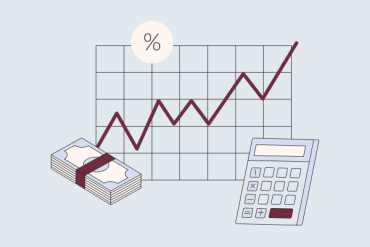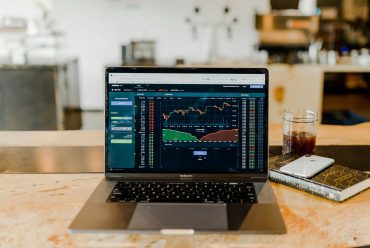US stocks had a solid rebound on Monday after President Trump softened his stance on China, stating the trade conflict “will all be fine.” The Dow Jones Industrial Average jumped 1.3% (over 550 points), the S&P 500 climbed nearly 1.5%, and the Nasdaq led, gaining about 2%. This comeback followed Friday’s steep losses triggered by fears of escalating tariffs.
Markets had been reeling after Trump threatened a 100% tariff increase on Chinese imports beginning in November. With that threat dialed back somewhat, investors returned to risk assets, especially in tech and chip stocks, while watching closely for further trade signals and key earnings reports.
Market Movers:
- Broadcom (AVGO): Shares rose over 9% after unveiling a new partnership with OpenAI to produce custom AI chips. The move bolsters Broadcom’s role in the AI supply chain and signals confidence in the continued investment wave in AI infrastructure.
- Tesla (TSLA): Tesla regained momentum, rising about 3%, after its Shanghai Gigafactory confirmed a ramp-up to full Q4 production. The increase suggests the company is pushing to recover from recent demand concerns and reassure investors about its China outlook.
- Qualcomm (QCOM): Qualcomm fell more than 5% after China’s antitrust authority launched an investigation into its acquisition of Autotalks. The probe adds regulatory risk to one of the leading U.S. tech firms exposed to China.
- Alibaba (BABA): Chinese tech names fell on the back of weak investor sentiment after Trump postponed a meeting with Xi and escalated trade barbs. Alibaba dropped sharply, echoing broader concerns about U.S.–China tensions.
Trade Tensions Ease, but Risk Remains
Trump’s softened tone on China helped ease some of the volatility that disturbed markets last week. By downplaying his earlier tariff threats and hinting that his relationship with Xi had merely had a “bad moment,” markets took his message as a partial retreat. That said, trade risk hasn’t disappeared. China is still maintaining export restrictions and antitrust probes—but for now, the air has cleared enough for investors to reengage.
Still, skepticism lingers. Some believe Trump’s tone shift may be tactical rather than strategic. Markets will be scanning the next moves in trade policy for signs of whether the détente can hold or revert to escalation. China’s September export growth, which surprised on the upside, also adds complexity—showing resilience outside the U.S. while stimulating fresh debate about global demand.
Shutdown, Data Gaps, and AI Optimism
With the federal government shutdown ongoing, many economic releases—including consumer data, jobs numbers, and inflation reports—have been delayed or canceled. That has forced investors to lean more heavily on corporate earnings, private surveys, and signals from monetary policy.
AI optimism is contributing to the market’s rebound. The Broadcom–OpenAI deal joins a growing list of tech–AI tie-ups that have become catalysts for investor appetite. Even amid geopolitical uncertainty, the prospect of surging AI spending is fueling sector rotations toward chip, semiconductor, and infrastructure names.
At the same time, investors are monitoring top-tier earnings from the financial sector. JPMorgan, Citigroup, Goldman Sachs, and others are set to begin reporting this week, offering the first test of how extended trade tensions and economic concerns are affecting corporate health.
Looking Ahead
Today’s rally suggests markets are eager to reprice risk as hope for a thaw in U.S.–China tensions returns. But with the shutdown obscuring economic visibility, investor focus will shift to earnings and Fed signals to validate the rebound. If trade rhetoric remains calm and AI-driven demand holds, we may see sustained momentum. But any hint of renewed escalation or disappointing bank results could reignite volatility. For now, the market is cautiously leaning in—but with one eye on headlines and the other on fundamentals.


